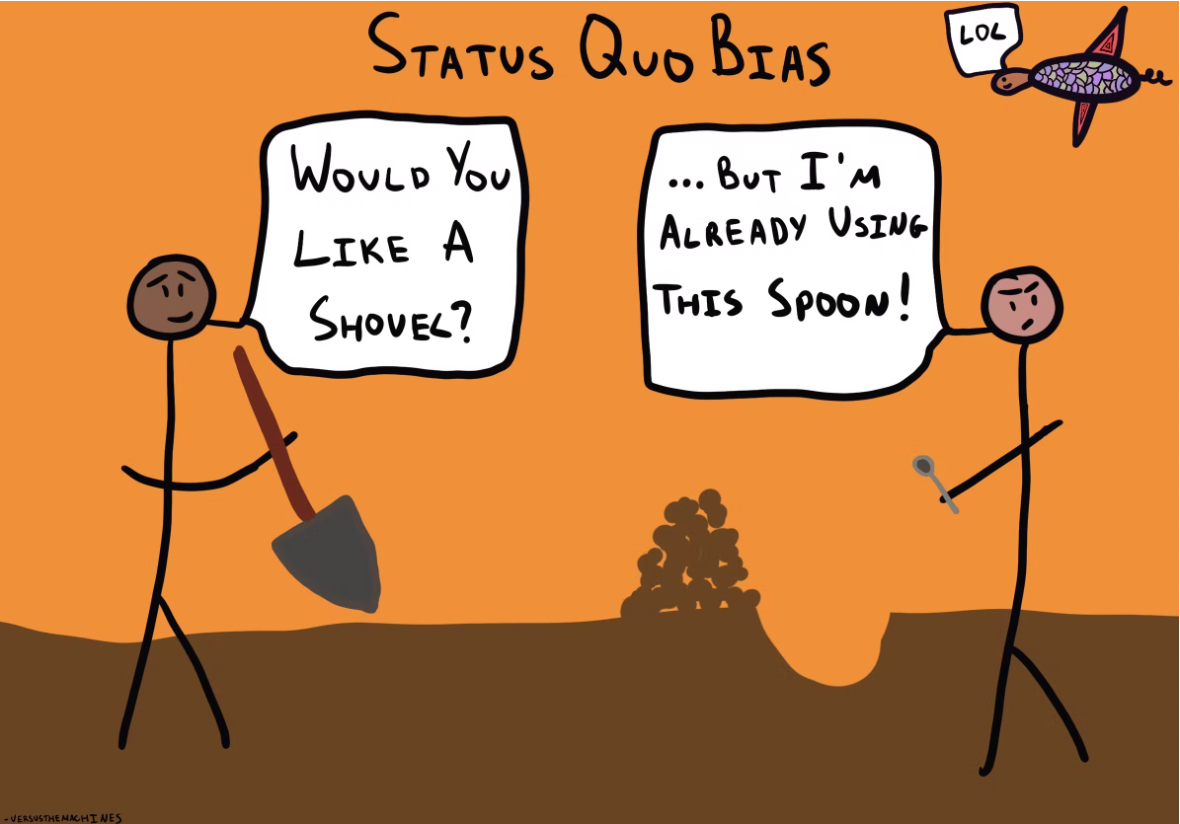On status quo bias
When you’re shopping for toothpaste, do you buy the same one or try a new one each time? That's not a trick question. If you’re like most people, you pick a toothpaste you like and then stick with it.
That’s an example of status quo bias. It’s the preference for maintaining our current situation. And in this example, it’s a sensible choice. If you tried to choose between the status quo and a million other options for every little decision, you’d be paralyzed.
But in many other cases, especially consequential ones, it’s important to be aware of status quo bias and figure out ways to mitigate it.

Let's take a look at two examples, one at an individual level and one at a societal level:
- Imagine you're unsatisfied with your current job. You've been there for years, and you feel like you're not being challenged anymore. However, when a great new job opportunity comes your way, you hesitate. You consider the potential challenges and risks of the new job and ultimately decide to remain in your current role, even though the new opportunity could lead to significant personal growth.
- Countries have relied on non-renewable energy sources like coal and oil for decades. Even with clear evidence of climate change and more sustainable energy options available, transitioning has proven challenging. Established industries and infrastructure are hard to dismantle, and new technologies bring unknowns. The status quo bias plays a role here, as people may resist change due to perceived risks and uncertainties, despite clear long-term benefits.
Risk aversion and loss aversion both enable the status quo bias. While we’re wary of the unfamiliar, we fail to recognize the dangers of the familiar. We also tend to prefer not losing something over gaining something of equivalent value. Losses sting harder.
Status quo bias is also a way to avoid the cognitive dissonance we face when confronted with difficult choices. It can be mentally easier to simply continue as is and kick the can down the road rather than address the situation.
I’ve personally had to deal with status quo bias several times throughout my career. Whether leaving the jewelry industry to pursue startup life, quitting a well-paid job to work on my startup, or stepping back from that startup to take a sabbatical, it would have been easier to stay the course in many ways.
But over time and with experience, I've come to realize that when my work ceases to provide a sense of meaning and fulfillment, it's a sign to pause, reflect, and consult with a few people I trust. It doesn’t always lead to immediate or drastic change, but it serves as a valuable reminder to take off my blinders and consider things more objectively. So far, this approach has served me well, preventing me from getting stuck in an unfavorable status quo situation for too long.